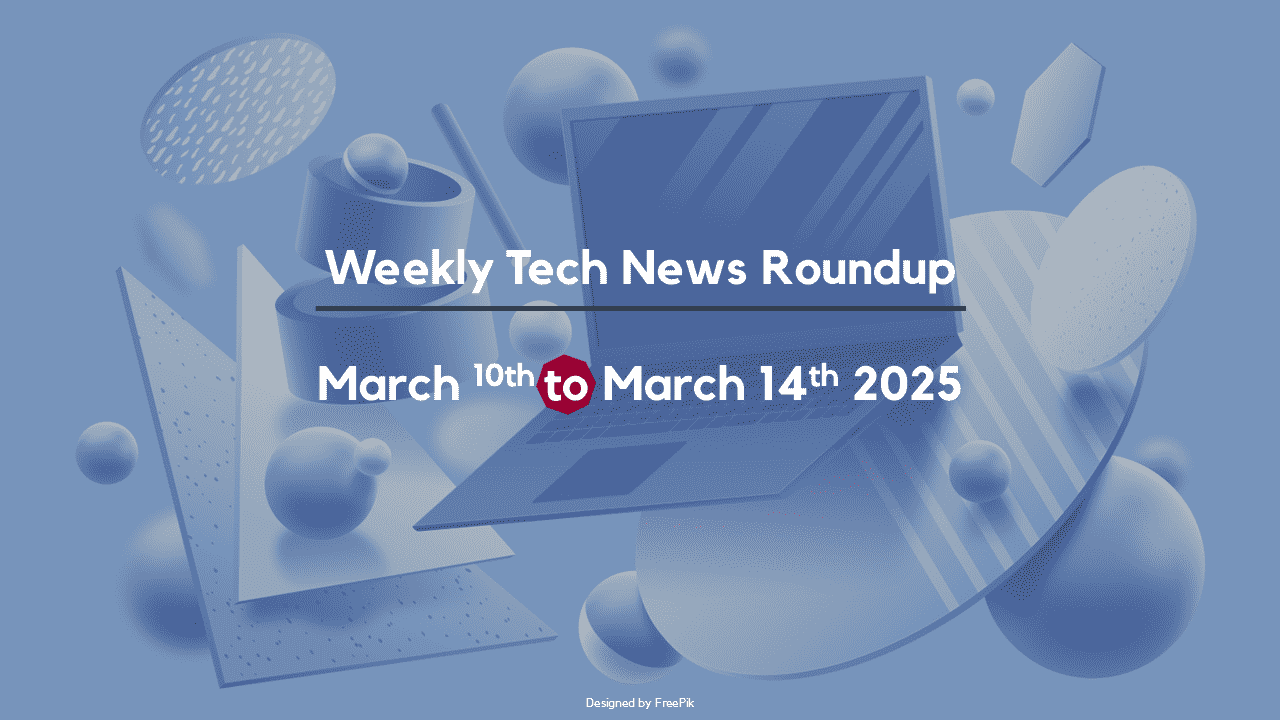Five Years On: How the Pandemic Transformed the Tech Industry Forever
24 Mar, 20258 minutesThis week marks five years since the onset of the pandemic, a massive moment across the UK j...

This week marks five years since the onset of the pandemic, a massive moment across the UK job market that transformed entire industries almost overnight (putting it lightly). While the pandemic is well behind us, it’s easy to overlook just how much the tech and business world at large has evolved into its current state from where it is.
From brands scrambling to prepare their online stores and internal systems to tech stacks changing to account for for evolving customer expectations. Let’s chart some of the biggest shifts we’ve seen and whether we think they’re here to stay or on there way out.
1) Remote and Hybrid Work: The New Normal
The most obvious, nontechnical and widespread change has to be in how the average work week occurs - What was once considered a perk for only a select few in a business, remote and hybrid work arrangements, quickly became a necessity for nearly everyone during the pandemic.
Fast forward five years, and hybrid work has become pretty much a standard practice for many tech companies. Teams seamlessly collaborate using digital tools, and employees now have the flexibility to choose between working from home, the office, or a combination of both.
This "new normal" has also had a profound impact on the talent pool. Remote work has broken down geographical barriers, enabling companies to hire developers, engineers, and other tech talent from virtually anywhere. The effects of this shift are reflected in the numbers:
- 83% of employers report that remote work has been successful for their companies.
- 52% of employers say employee productivity has improved since going remote.
- 81% of employees are satisfied with their productivity while working from home.
However, as we near the five-year mark since the pandemic reshaped the workplace, the landscape is shifting once again. Major companies such as Amazon, Dell & Walmart have begun scaling back remote work policies. That said, while the push to return to pre-pandemic ways of working has gained traction in some corners, we find it hard to envision a future where this reversal fully takes hold across the board. The die has been cast, and the cultural shift towards flexible work seems too big to completely undo. What’s clear, however, is that the debate over the future of work is far from settled. The tech industry is still navigating this evolving landscape, and where it will ultimately land remains an open question.
2) The Rise of Automation and Testing
As the pandemic pushed more businesses online, it stands to reason that the butterfly effect of this would be in the advancement of online systems to cope with the advent of more users – with that change, automation quickly became a vital part of the development process. Teams needed to release software faster and more frequently, which meant testing needed to become more automated.
Manual testing couldn’t keep up with the speed required in agile environments. Developers, engineers, and testers had to work closely together to create automated testing solutions, often integrated into continuous integration/continuous deployment (CI/CD) pipelines. Mobile testing also surged in importance as more businesses moved to eCommerce platforms and mobile apps.
For testers, this change has been permanent with engineering now tied closely to automation more than pre-pandemic levels.
Today, testers are more integrated into the development process, using automated testing tools to ensure products are built faster and more efficiently testing, as businesses continue to prioritise faster, more reliable software releases.
- The global market for automation tools is expected to reach $13.5 billion by 2026, growing at a compound annual growth rate (CAGR) of 24% (Statista).
- 43% of organisations have implemented automated testing tools, with 58% planning to increase their testing automation over the next two years (World Quality Report).
3) Cloud Adoption: From Optional to Essential
Another consequence of the pandemic and the stay-at-home mandates were highlighting the importance of cloud-based infrastructures. With teams working remotely and businesses needing to adapt quickly, the cloud became a lifeline on mass. Tech companies quickly turned to cloud platforms like AWS, Azure, and Google Cloud to ensure business continuity and the lights remained on.
The shift to the cloud is not just about moving data either, it’s about creating more flexible, scalable systems. The rise of microservices and containerization has allowed businesses to build and deploy software faster and more securely.
Cloud adoption has also made it easier for distributed teams to collaborate, reducing the need for expensive on-premises infrastructure. Again, with the shift being so successful it’s unlikely we’ll see a return to traditional data centres anytime soon though there’ll always be a place for hybrid models and on-premises solutions in highly regulated industries or for organiations with specific security and latency requirements.
- 92% of businesses utilise more than two public cloud providers (Flexera’s State of the Cloud Report).
- The global cloud computing market is expected to reach $1.5 trillion by 2028, growing at a CAGR of 17.9% (Fortune Business Insights).
4) Agile and Lean: Adapting to Uncertainty
Adaptability became crucial. Tech teams prioritised faster software delivery, responding to evolving demands, and iterating swiftly. Agile and lean practices, already gaining momentum, emerged as the preferred approach for many.
Prior to the pandemic, agile methodologies were primarily utilised by larger development teams. However, the need for rapid adaptation led smaller teams to embrace agile and lean frameworks. Methods like Scrum, Kanban, and continuous iteration proved vital for maintaining a competitive edge.
For tech companies, adopting agile approaches resulted in shorter release cycles, more frequent updates, and improved collaboration. At MRJ, we observed a growing demand for agile talent Individuals skilled in project management, team leadership, and workflow optimisation.
- 95% of organisations have adopted agile practices, with 66% highlighting enhanced project visibility and success as key advantages (Annual State of Agile Report).
- 84% of respondents in a KPMG survey stated that they use either Scrum or Kanban in their organisation (KPMG survey).
5) Microservices and Event-Driven Architecture: The New Standard
Along with the rise of cloud technologies, many companies embraced microservices and event-driven architecture (EDA). Microservices allow businesses to break down applications into smaller, independent services, which can be developed and deployed separately. This makes it easier to scale applications and respond to changes quickly.
Event-driven architecture complements this by enabling real-time interactions between services. It allows for more dynamic, responsive systems that can adapt to changing business needs.
For development teams, the shift to microservices and EDA meant a focus on modularity and flexibility. As companies moved to cloud-first strategies, these architectures provided a foundation for building scalable, efficient applications.
6) The Emergence of DevOps and CI/CD
With the adoption of microservices and cloud-based infrastructure, DevOps became even more critical. DevOps is all about breaking down the barriers between development and operations teams to streamline workflows and improve collaboration. The goal is to deliver high-quality software faster and more efficiently.
DevOps practices, including continuous integration (CI) and continuous deployment (CD), became standard during the pandemic. Teams used CI/CD pipelines to automate testing, deployment, and monitoring, ensuring that software updates could be delivered quickly and reliably.
For recruitment, this shift meant an increase in demand for DevOps engineers and professionals skilled in CI/CD practices. DevOps has become a cornerstone of modern software development, and its adoption has only accelerated since the pandemic. Companies are now looking for experts who can help them automate and optimise their workflows, ensuring they stay competitive in an increasingly fast-paced environment.
- 83 percent of developers report being involved in DevOps-related activities with a Strong correlation between the number of DevOps technologies used by developers and their likelihood of being a top performer (State of CI/CD Report 2024)
- 94% of companies are using DevOps tools to improve automation and software quality (GitLab’s DevSecOps Survey).
Conclusion: The Pandemic’s Long-Term Impact on the Tech Industry
Looking back over the past five years, it’s clear that the pandemic has had a profound and lasting impact on the tech industry. From the shift to remote and hybrid work to the acceleration of cloud adoption, agile practices, and DevOps, the changes that were once seen as temporary have now become permanent fixtures in the tech landscape.
For those of us in recruitment, especially at MRJ Recruitment, we’ve had a front-row seat to these transformations. We’ve helped companies find candidates with skills that align with the new world of work. Whether it's cloud experts, DevOps engineers, or agile project managers, the demand for these roles is stronger than ever.
As we continue to adapt to these changes, it’s clear that the future of tech will be shaped by the lessons learned during the pandemic. The industry will continue to evolve, but the foundation for the next era of tech has already been laid.
Closing Statement: Navigating the New Era of Tech with MRJ Recruitment
Looking back over the past five years, it’s clear that the pandemic has reshaped the tech industry in ways we couldn’t have predicted. What seemed like temporary fixes—remote work, cloud adoption, automation—have now become permanent fixtures in the world of tech.
At MRJ Recruitment, we’re proud to be at the forefront of these changes. As your talent partner, we’re committed to helping companies navigate the evolving tech landscape. Whether it’s finding cloud experts, agile project managers, or DevOps engineers, we specialise in connecting businesses with the right talent to thrive in today’s fast-paced, ever-changing environment.
Explore Our Services:
- Tech Recruitment: From software engineers to DevOps specialists, we match your business with top-tier talent.
- Agile Recruitment: Agile project managers, scrum masters, and more—connect with professionals who can drive your projects forward.
- Cloud & DevOps Recruitment: Build your cloud-native and DevOps teams with skilled professionals who understand the latest tech trends.
Don’t let your business fall behind in the ever-changing tech world. Let MRJ Recruitment help you find the perfect candidates to power your success. Visit other areas of our website to learn more about how we can support your recruitment needs or get in touch to discuss how we can help you build your dream team.




